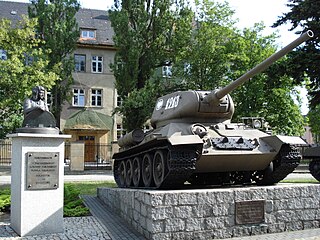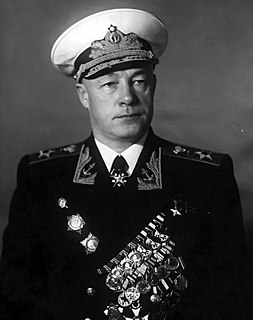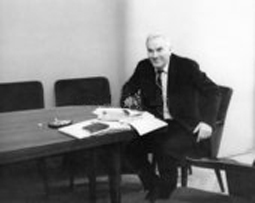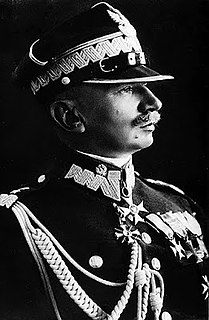 W
WThe 1st Armoured Corps was an armoured formation of the Polish People's Army during 1944 - 1945. The corps saw combat in Germany in 1945. Later that year, the subordinate units of the corps were dispersed to garrisons in Poland and the corps itself was inactivated in October 1945.
 W
WYakov Timofeyevich Cherevichenko was a Soviet military leader and colonel general.
 W
WAnatol Fejgin was a Polish-Jewish communist activist before World War II, and after 1949, commander of the Stalinist political police at the Ministry of Public Security of Poland, in charge of its notorious Special Bureau. During the Polish October revolution of 1956, his name – along with a number of others including his colleague Col. Józef Różański, and Minister Jakub Berman – came to symbolize communist terror in postwar Poland.
 W
WKonstantin Dmitryevich Golubev was a Soviet general and army commander.
 W
WFranciszek Jóźwiak was a Polish communist politician, military commander, chief of staff of the People's Guard, the People's Army and the Citizen's Militia as well as deputy chairman of the Council of Ministers of the People's Republic of Poland and a long time member of the Politburo of the Polish United Workers' Party.
 W
WPinkus Kartin was a Polish-Jewish communist activist and anti-Nazi resistance fighter.
 W
WStanisław Komornicki was a Brigadier General in the Polish Army and the Chancellor of the Order Virtuti Militari. He was born in Warsaw. He was a Polish underground activist, a member of underground Scouting, a Soldier of Armia Krajowa, a participant in the Warsaw Uprising, an Officer of the Polish First Army, a participant in the Battle of Kolberg, a writer, and a military historian.
 W
WNikolay Gerasimovich Kuznetsov was a Soviet naval officer who achieved the rank of Admiral of the Fleet of the Soviet Union and served as People's Commissar of the Navy during the Second World War. The N. G. Kuznetsov Naval Academy and the Russian aircraft carrier Admiral Kuznetsov are named in his honor.
 W
WIgnacy Loga-Sowiński was a Polish trade union activist and politician. He was a member of the Central Committee and Politburo of the Polish United Workers' Party. He was a member of the State National Council from 1956 to 1971. He also served as the deputy chairman of the council and was an ambassador of the Polish People's Republic to Turkey from 1971 to 1978.
 W
WWładysław Machejek was a communist official, writer, publicist and hoax artist during the Stalinist reign of terror in Poland following World War II. He wrote fabricated accounts of anti-communist underground mainly for his own political gains as regional party secretary and later member of the communist highest parliamentary echelons. Due to the coarse and infamous nature of his works, he has been described as a "legendary socialist scribbler".
 W
WAdam Feliks Próchnik was a Polish socialist activist, politician and historian.
 W
WBronisław Prugar-Ketling was a Polish general.
 W
WStanisław Radkiewicz was a Polish communist activist with Soviet citizenship, a member of the pre-war Communist Party of Poland and of the post-war Polish United Workers' Party (PZPR). As head of the Ministry of Public Security of Poland between 1944 and 1954, he was one of the chief organisers of Stalinist terror in Poland. He also served as a political commissar and was made a Divisional General in Communist Poland.
 W
WJuliusz Karol Wilhelm Józef Rómmel was a Polish military commander, a general of the Polish Army.
 W
WPavel Semyonovich Rybalko was a commander of armoured troops in the Red Army during and following World War II.